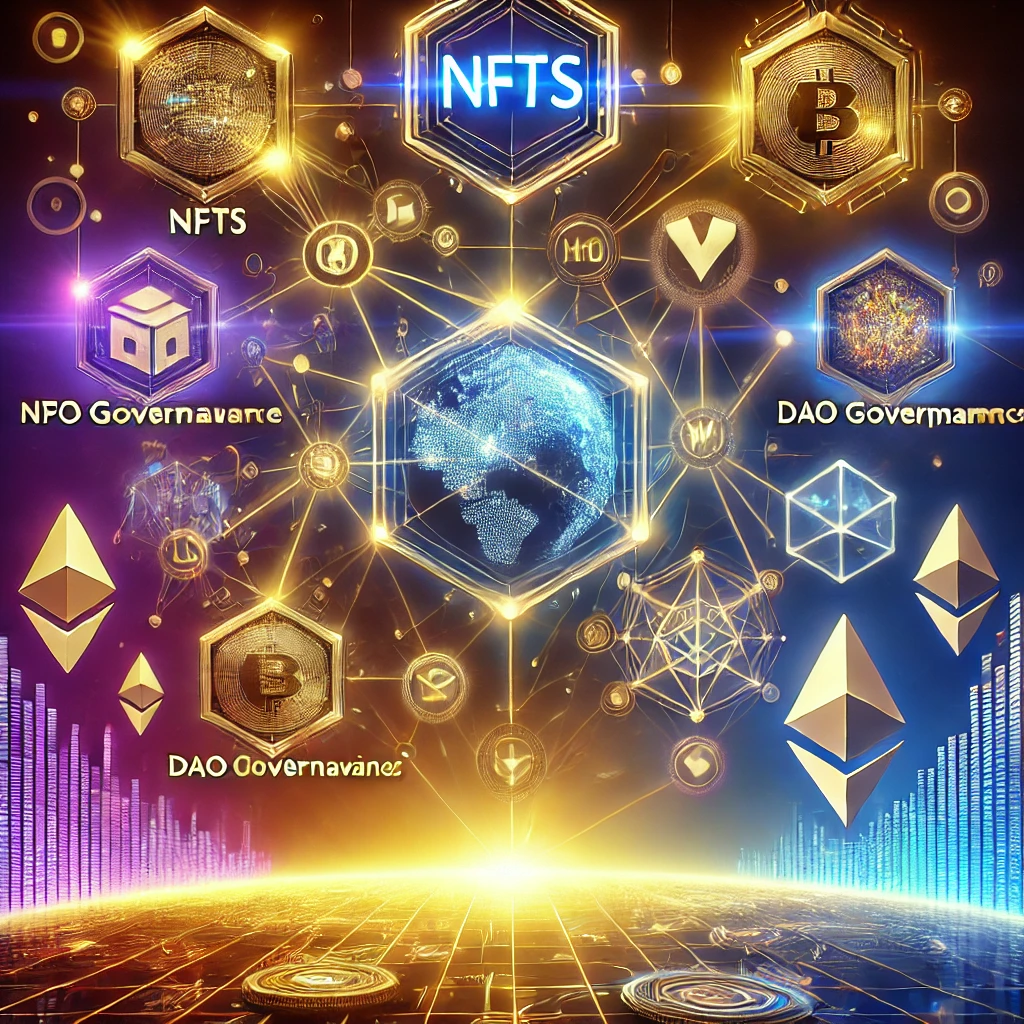When most people hear the term “blockchain,” they immediately think of Bitcoin and other cryptocurrencies. While blockchain technology certainly gained prominence thanks to Bitcoin, its potential reaches far beyond digital currency. At its core, blockchain is a revolutionary form of distributed ledger technology (DLT) that offers transparency, security, and decentralization—features that can be applied across various industries.
In this blog, we’ll explore how blockchain is being used in sectors beyond cryptocurrency, such as supply chain management, healthcare, data storage, and more. Let’s dive into the transformative power of blockchain technology and its diverse use cases across industries.
What Is Blockchain Technology?
At its most basic level, blockchain is a distributed ledger that records transactions across a network of computers, known as nodes. This decentralized approach means that no single entity has control over the entire system, making blockchain highly secure and resistant to tampering. Each transaction, or “block,” is verified by a consensus mechanism, ensuring accuracy and transparency before being added to the “chain.”
Initially created to support Bitcoin, blockchain has since evolved into a powerful tool that industries are using to solve a variety of problems, from data security to operational inefficiencies.
1. Blockchain in Supply Chain Management
One of the most promising applications of blockchain technology lies in supply chain management. The global supply chain is notoriously complex, involving multiple parties, from manufacturers to distributors, retailers, and consumers. Ensuring transparency, tracking products, and preventing fraud are major challenges faced by industries worldwide.
Blockchain provides a solution by offering real-time visibility and traceability throughout the entire supply chain. Here’s how:
- Transparency: Every transaction or movement of goods is recorded on the blockchain and visible to all participants in the supply This ensures that each stakeholder has access to the same verified information.
- Tracking and Traceability: Blockchain allows companies to track the journey of products from their origin to the final For example, food products can be traced from farm to table, ensuring quality and authenticity. This is especially useful in industries like pharmaceuticals, where counterfeit products are a major concern.
- Reducing Fraud: Since blockchain transactions are immutable, it becomes nearly impossible for anyone to alter or tamper with supply chain data. This ensures greater accountability and reduces fraud or
Major companies, including Walmart and IBM, are already using blockchain to streamline their supply chains, enhance product tracking, and reduce inefficiencies.
2. Blockchain in Healthcare
The healthcare industry is another area where blockchain is making a significant impact. With increasing concerns around data privacy, interoperability, and accuracy, blockchain technology offers solutions that can revolutionize how healthcare systems manage and store patient data.
- Securing Medical Records: One of the biggest advantages of blockchain in healthcare is its ability to securely store and share medical records. Patients can grant healthcare providers access to their medical histories without worrying about data breaches or unauthorized Since blockchain data is immutable, patients can be sure that their medical records remain accurate and unaltered.
- Data Interoperability: Healthcare systems often struggle with siloed data, where medical information is scattered across different platforms, making it difficult for healthcare providers to access complete patient Blockchain enables seamless sharing of medical data across institutions, improving diagnosis, treatment, and patient care.
- Clinical Trials and Research: Blockchain can also be used to securely store and verify clinical trial By providing an immutable record of the trials, researchers and healthcare professionals can ensure that trial data is accurate and hasn’t been tampered with. This could help improve transparency and trust in the results of medical research.
For example, companies like MedRec are utilizing blockchain to secure and manage healthcare records, offering a more patient-centric approach to data privacy and management.
3. Blockchain in Decentralized Identity and Voting
In the era of digital communication, identity verification and data security are increasingly important. Blockchain technology offers a new way to handle decentralized identity and even revolutionize the way we vote.
- Decentralized Identity: Traditional identity systems rely on centralized authorities (like governments or corporations) to verify and manage identities. This centralization creates security risks and privacy Blockchain enables the creation of self-sovereign identities, where individuals own and control their personal information. Instead of having their identities stored on centralized databases, users can manage their own credentials on a blockchain. This reduces the risk of identity theft and ensures data privacy.
- Blockchain Voting: Trust in election integrity is a major concern in many countries. Blockchain technology can enhance the voting process by offering a transparent, tamper-proof Voters can cast their ballots online, and each vote is recorded on the blockchain, where it can be verified but not altered. This ensures fair and transparent elections, where tampering or fraud is nearly impossible.
Countries like Estonia are already exploring blockchain-based voting systems, proving that this technology can significantly improve the democratic process.
4. Blockchain for Data Storage and Security
Data breaches and cyberattacks have become increasingly common in today’s digital age, with centralized servers being prime targets for hackers. Blockchain offers a secure, decentralized alternative for data storage and security, protecting sensitive information from unauthorized access.
- Decentralized Data Storage: Instead of relying on centralized servers, blockchain enables distributed storage across multiple nodes. This decentralized approach reduces the risk of a single point of failure and makes it significantly harder for hackers to compromise sensitive information. Projects like Filecoin and Storj offer decentralized cloud storage solutions that use blockchain to ensure data security and
- Data Security: The cryptographic nature of blockchain ensures that data is securely Once data is recorded on the blockchain, it becomes immutable, meaning that it cannot be altered or deleted. This makes blockchain an ideal solution for sectors that deal with highly sensitive information, such as finance, healthcare, and government services.
Blockchain’s decentralized storage capabilities not only provide better security but also allow for more transparency in how data is stored and accessed.
5. Other Emerging Use Cases
Beyond these industries, blockchain’s potential is being explored in various other fields:
- Energy: Blockchain technology can be used to create decentralized energy grids, where consumers can buy and sell renewable energy directly from one Projects like Power Ledger are already experimenting with peer-to-peer energy trading using blockchain.
- Real Estate: Blockchain can streamline the real estate industry by simplifying property transfers, reducing fraud, and improving the efficiency of transactions. Smart contracts can automate processes like property sales, lease agreements, and rental
- Entertainment and Media: Content creators can use blockchain to protect intellectual property, track royalties, and distribute content directly to Platforms like Audius are using blockchain to allow musicians to maintain control over their music and receive royalties instantly.
Conclusion: The Future of Blockchain Beyond Bitcoin
Blockchain technology’s potential extends far beyond cryptocurrency. From supply chains and healthcare to decentralized identity and data storage, blockchain is transforming industries by offering greater transparency, security, and efficiency. As adoption continues to grow, we’re likely to see even more innovative use cases emerge, reshaping the way we interact with technology and the world around us.
Blockchain is no longer just about Bitcoin—it’s about creating a decentralized future where users have more control and security in every aspect of their digital lives. The possibilities are endless, and we’re only just beginning to see what this revolutionary technology can do.







